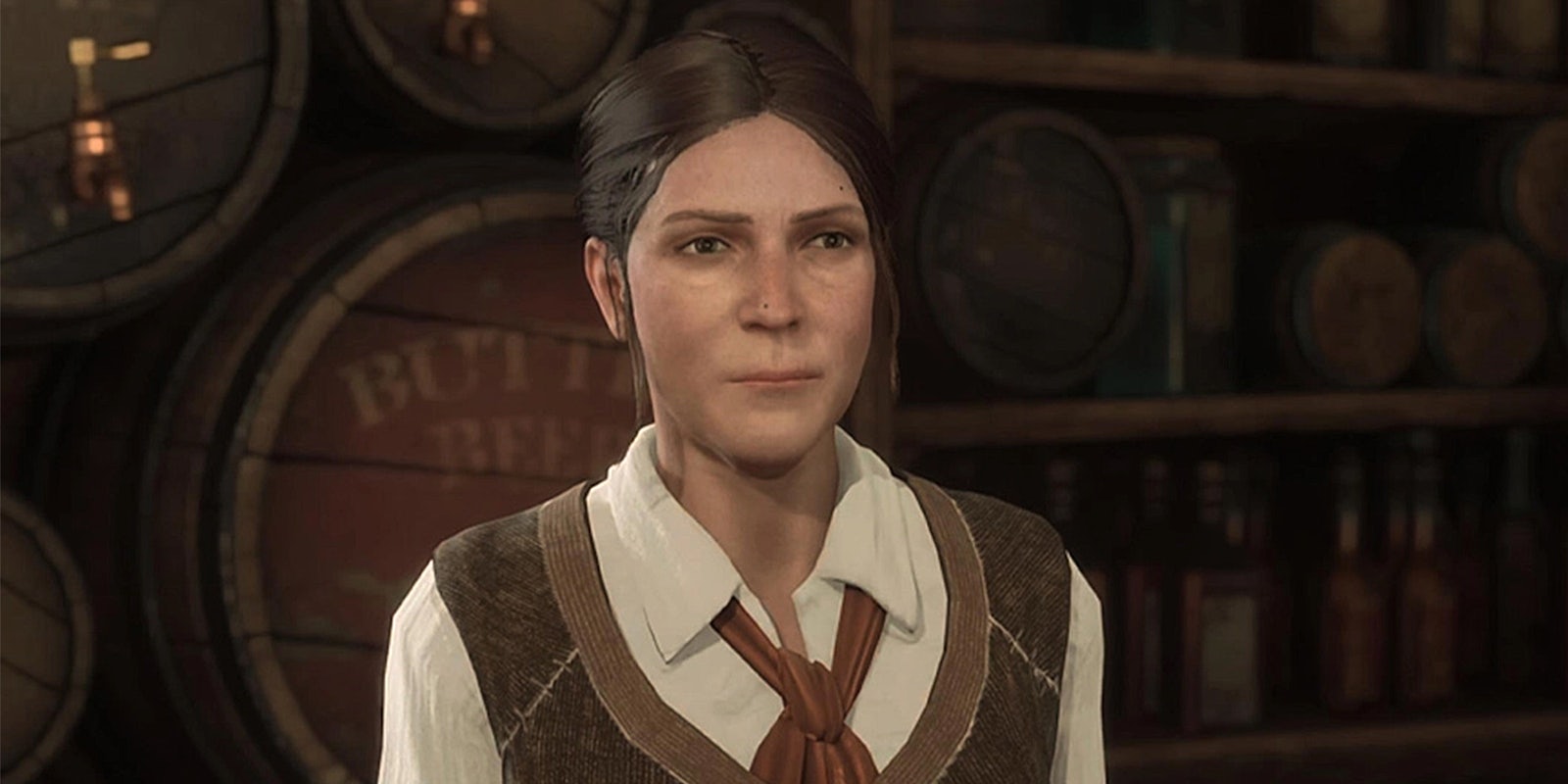The long-awaited Harry Potter game Hogwarts Legacy was already controversial for multiple reasons, and the introduction of a transgender character really hasn’t helped.
Revealed on Monday, the character Sirona Ryan works at the Three Broomsticks bar in Wizarding London, playing a key role during one of the game’s goblin-related missions.
Since J.K. Rowling is regularly criticized for promoting transphobic views, Sirona Ryan is already facing scrutiny as the first trans character in the Potter franchise. Sirona’s name is a particular issue, sparking a derisive response on Twitter as detractors highlighted the fact that Sirona Ryan begins with the prefix “Sir” and ends with Ryan, which is typically a masculine name in the UK.
Speaking to IGN, a representative from Hogwarts Legacy developers Portkey Games said that Sirona was included because “The team felt that it was very important to create a game that is representative of the rich and diverse world of Harry Potter as well as the groups of people who play games, which includes the LGBTQIA+ community.”
This rather polished media statement is the latest awkward example of the conflict between Rowling’s own politics, and the marketing campaigns around the Harry Potter franchise. The people behind Hogwarts Legacy want it to be an inclusive game with mainstream appeal, but that’s increasingly tricky when Harry Potter’s creator is widely perceived to be a vocal transphobe.
Hogwarts Legacy faced criticism and boycott campaigns a full year before its release, and many of Rowling’s detractors argue that spending any money on Potter products is a tacit endorsement of her politics. And while Rowling wasn’t involved in this game’s creative process, Sirona Ryan echoes Rowling’s much-derided habit of selecting tone-deaf names for minority characters.
Cho Chang’s name has long been criticized for its lack of cultural and linguistic authenticity, incoherently combining a pair of Chinese and Korean surnames. Several other Potter characters have inspired similar accusations of being either comically stereotypical or downright racist, including Kingsley Shacklebolt, Seamus Finnegan and Panju, Ron Weasley and Padma Patil’s child in the Cursed Child stage play.
This overlaps with the negative response to Rowling’s worldbuilding outside of Wizarding Britain, such as the nonsensical racial politics for Fantastic Beasts‘ 1920s American setting, criticism for her use of Native American folklore, and logistical doubts about her Eurocentric plans for international wizarding education, which envisioned two schools for the entire African continent.
Harry Potter’s occasionally tone-deaf naming conventions are, at this point, old news. Portkey Games should have spent more time troubleshooting potential responses to Sirona Ryan, but even if her name was totally uncontroversial, she probably couldn’t escape accusations of tokenism. The franchise’s problems run too deep to be solved by diversifying the cast of a videogame. And as long as Harry Potter remains a popular mainstream media property, its existence serves as reputation management for Rowling’s extremist views.



